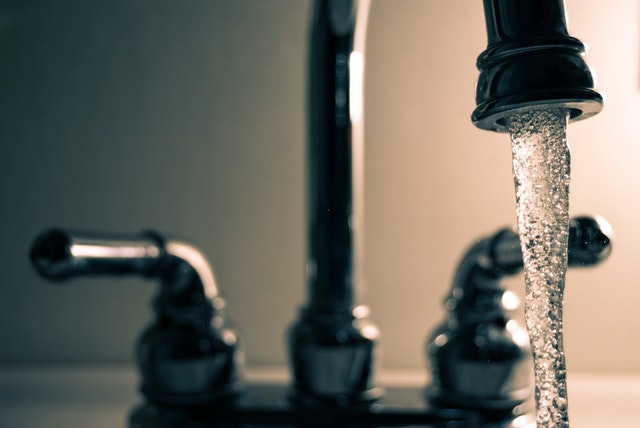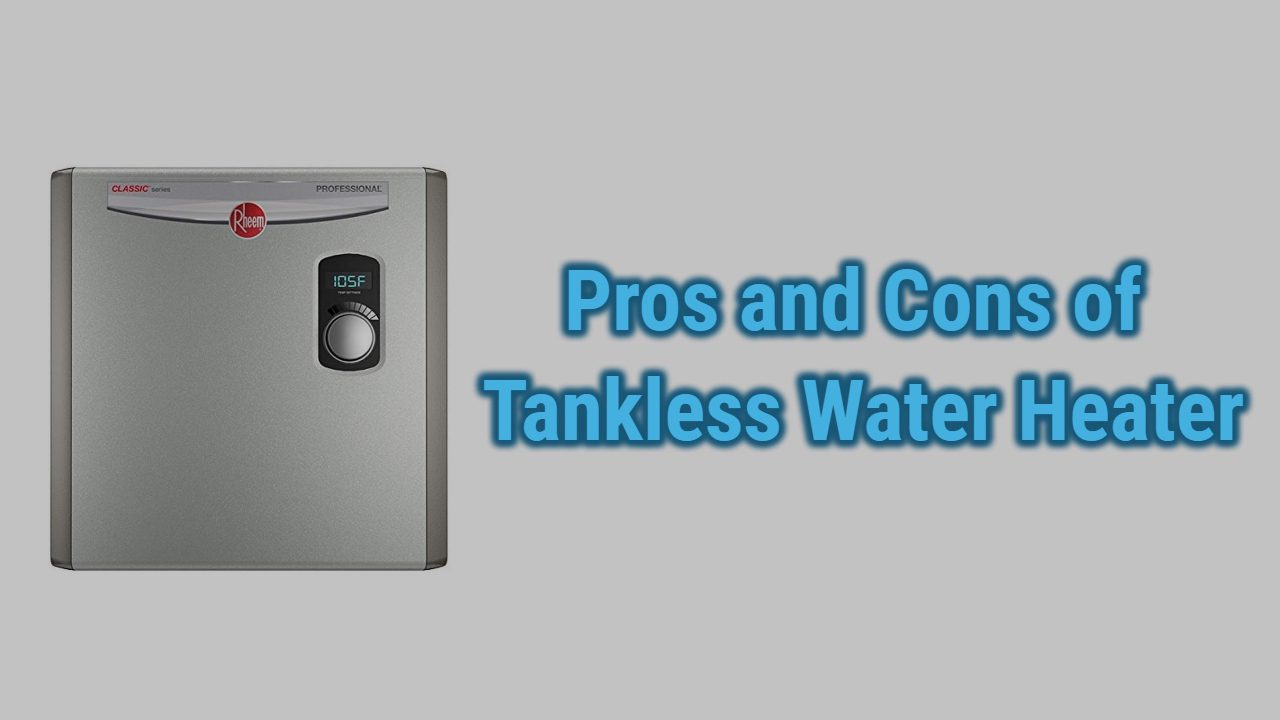After years of service, if your tank water heater is failing, you should start looking for a new heater. In the market, you will have plenty of options to choose from. You can go with another tank water heater or adapt to new tankless water heaters. A tankless water heater offers many advantages over tank water heaters. They are a great long-term investment.
To make a better decision their advantages are not only things that should be considered, they have some disadvantages too, which also need attention. A tankless water heater may be the right solution for one home, but it might not be for another. Here we have discussed the pros and cons of tankless water heaters.
Table of Contents
Pros of Tankless Water Heaters

Efficiency
The tankless water heaters are more efficient than the tank water heaters, and It can be considered as a major advantage of tankless units. Unlike tank water heaters, the standby losses are not there in the tankless units. A tankless unit that supplies the water to the small family, or if the daily hot water consumption stays below 41 gallons per day, then that unit can be 24 to 34 % more efficient.
The efficiency decreases as the daily hot water consumption increases. If the heater has to supply more than 80 gallons of hot water daily, then the efficiency will fall to only 8 to 14%. This means the efficiency of the heater will be different for different daily water consumption.
The transition from the tank units to tankless units will save you hundreds of dollars yearly, according to Energy star, a tankless water heater employed for a family of four can save 100 dollars yearly. If the heater works for 15 years, then it will save you $1500.
Lifespan
The lifespan can be a decisive factor for homeowners who are planning to stay at one place for decades. This is because a tankless water heater offers a lasting life period. If you go with the tank-style water heater, then it will last for about 8 to 12 years. Whereas, a tankless water heater offers a lifespan of 20 years, if not more.
Continuous and Quick Hot Water
If you have or had tank water heaters, you may be knowing that if all the water in the tank is consumed, then you will have to wait until the tank is refilled. But this problem is not there with the tankless water heater. They heat the water when it is requested out of the hot water tap, and this means if you have a continuous supply of cold water, you can say that you have a continuous hot water supply.
And also, you get the hot water in a matter of seconds. But the thing is, they can heat a certain amount of water in a certain amount of time, this is not good for larger households, we will come to this in a bit.
Compact Size
When it comes to storing, the tank-style water heaters are big, I mean really big; they can take up much of your garage space or the laundry room. For the sake of an estimate, these tanks will be typically two feet wide and five feet tall. The big size can create a storage problem for a smaller home, but it can be eliminated with the use of the best tankless water heater.
A tankless water heater is small, and they don’t have tanks. They are rectangular equipment with the typical size of 27 inches in height and 18 inches wide. Moreover, they are mostly hanged on a wall. This will free a significant amount of space in your garage or basement.
Safety
Tankless water heaters are safer than tanked units, and the reason is the missing tank.
A tank in conventional heaters stores the water; over time, there will be a mineral build-up inside the tank. This will result in the corrosion and rusting of the inner lining. This will lead to the leakage problem. That will not be an issue with the tankless system because they don’t have tanks. This doesn’t mean that the tankless systems are immune to leaking. There will be leaks, and these leaks won’t be that much to get your basement flooded.
Moreover, the rusting and corrosion due to the build-up will inject harmful toxins from the tank material into your water supply. This can lead to some serious health problems over the long term. This problem is also absent in the tankless water heaters because there is no tank!
Unlike the tanked water heaters, you can control the temperature in the tankless units more precisely, and this eliminates the risk of getting burnt. Other than that, a tankless water heater poses a risk of explosion. A tank water heater must have a temperature and pressure valve.
These are there to control the pressure in the tank, but over time when the mineral build-up blocks the proper functioning of these safety mechanisms. It gets very dangerous, and the tank can explode due to high-pressure build-up. This problem is also not present in the tankless water heater due to the lack of a tank.
Till now, we have discussed the major advantages of having a tankless water heater. Now let’s see what the drawbacks are.
Cons of Tankless Water Heaters

High Initial Cost

The tankless water heaters are a great choice over conventional water heaters, but the price comes in a way. The major drawback of tankless water heaters is their high upfront cost. A tank water heater will cost you about $1000, and this is the total cost of the unit and also of the installation. But for the tankless units, the cost of the unit alone will be in thousands.
Besides, the tank water heaters are new in the market, but the tank heaters are present here for centuries, which means there will be many plumbers who can do the installation. This results in a lower installation cost.
As far as the tankless units are concerned, their installation is quite tricky and needs to be done by a certified plumber or an Electrician. Other than that, you might need a new vent and an upgrade to your electrical system, which also increases the installation cost.
Note that the high amount of hard minerals in the water will break down the unit prematurely. So, some companies require you to have a water softener, and if you don’t have one, then the warranty will be voided; this furthermore adds to the cost.
Limited Flow Rate

A tank water heater will have a tank of 40 to 60 gallons, full of hot water, and this means it can supply enough hot water to more than few hot water outlets simultaneously.
But this is not the case with tankless water heaters. They don’t have a tank, so they heat the water as needed. They can properly supply the hot water to about 2 or 3 hot water outlets. If you turn on more than that, then you are pushing it to the limit. In this case, the water output and pressure at every outlet will decrease.
The problem of flow rate will be there if the sizing of the water heater is not accurately done. For a large house, a single unit won’t cut the deal. What you can do is install more than one unit at different places in the house.
Cold Water Sandwich
This is not a major problem, but it should be mentioned. You might have heard the term Coldwater sandwich. This means that first, the hot water comes out of the tap, then cold water, which will be followed by hot water again.
This kind of water flow results when you use the hot water periodically, which means you turn and off the hot water tap quickly.
No Power No Hot Water
Tankless water heaters use either gas/propane or electricity to heat the water. For an electric tankless water heater, it is obvious that when the electricity is not there, the heating element won’t work. But how a gas unit needs electricity to properly function. The answer is simple, a natural gas water heater, which will have a control panel that works on electricity.
This means if you have a tankless water heater, then the power is necessary to have hot water. If you live in a disaster-prone area where power outages are frequent and electricity doesn’t come back for days, then the tank-type water heaters will be the best bet.
The Bottom Line

A tankless water heater has many advantages over tank water heaters. It is energy efficient and will save money in the long run, and it instantly provides hot water. They have small and compact dimensions. Also, unlike tank water heaters, there won’t be a leakage problem, and even if there is, it will be minor. Moreover, it won’t contribute toxins to the hot water.
A tankless water heater lasts longer, but to have one in properly functioning condition, you will have to invest a high amount of money upfront. Also, if the power goes out, then you will be without hot water. So, the choice between tank or tankless units depends on your situation and budget.
If the money is tight and you use a small amount of water daily, then a tank unit will be a good choice. On the other hand, you can go with the tankless units if you will stay in the house for the foreseeable future; it will pay itself off in the long run.
Read More: Gas vs Electric Tankless Water Heater
